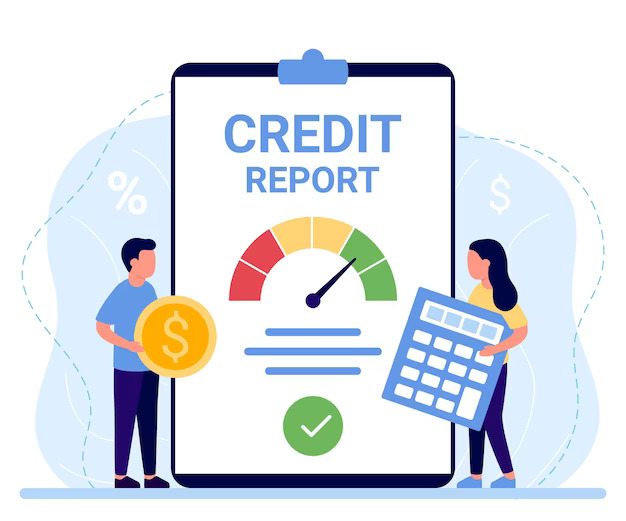In the modern financial landscape, credit plays a significant role in shaping individuals’ purchasing power and overall financial well-being. Understanding the role of credit reports is essential for making informed financial decisions. A credit report is a comprehensive summary of an individual’s credit history, including credit accounts, payment history, and credit inquiries. It serves as a crucial tool for lenders, landlords, insurers, and employers to assess an individual’s creditworthiness. In this article, we will explore the importance of credit reports in personal finance and provide tips on how to use credit wisely and strategically to secure a healthy financial future.
Role of Credit Report in Personal Finance
A credit report acts as a financial report card, providing a snapshot of an individual’s creditworthiness to potential lenders and creditors. When applying for a loan, credit card, or even a rental agreement, lenders and creditors review the credit report to determine the level of risk associated with the applicant. A positive credit history, with a high credit score, signals responsible credit usage and payment behavior, making it easier to obtain credit at favorable terms and lower interest rates. On the other hand, a negative credit history, with a low credit score, can lead to loan rejections and higher interest rates, potentially hindering financial opportunities.
Tips to Use Credit Wisely and Strategically
Here are some tips for you to manage your credit wisely and strategically.
Build a Solid Credit History
If you are new to credit, start building your credit history by opening a credit account, such as a credit card or a small personal loan. Use credit responsibly by making timely payments and keeping credit utilization low. Demonstrating responsible credit usage over time will help establish a positive credit history and improve your credit score.
Pay Bills on Time
One of the most critical factors in credit scoring is payment history. Ensure that you pay all your bills, including credit card bills, loans, and utilities, on time each month. Late payments can significantly impact your credit score and lead to negative entries on your credit report.
Maintain a Healthy Credit Utilization Ratio
Credit utilization, the percentage of your available credit you are currently using, is another vital aspect of credit scoring. Aim to keep your credit utilization ratio below 30%. This shows lenders that you are not overly reliant on credit and are managing your finances responsibly.
Monitor Your Credit Report Regularly
Regularly review your credit report from all three major credit bureaus (TransUnion, Equifax, Experian and CRIF High Mark) to ensure accuracy and detect any potential errors or fraudulent activity. Keeping an eye on your credit report allows you to identify errors or potential fraud early on.
Limit New Credit Inquiries
Each time you apply for new credit, a hard inquiry is recorded on your credit report, which can slightly impact your credit score. Limit the number of credit applications, especially within a short time frame, to avoid potential negative effects on your credit score.
Diversify Your Credit Mix
Having a mix of different types of credit, such as credit cards, installment loans, and retail accounts, can positively impact your credit score. However, only take on credit that you can manage responsibly.
Avoid Closing Old Accounts
The length of your credit history matters. Closing old credit accounts may shorten your credit history, which can negatively impact your credit score. Keep old accounts open, especially if they have a positive payment history.
Be Patient and Responsible
Building a strong credit history takes time and responsible credit management. Avoid shortcuts like credit repair companies that promise quick fixes. Focus on consistent, responsible financial behavior.
Educate Yourself on Credit
Stay informed about credit management, credit scores, and personal finance. Knowledge is essential for making informed decisions about your financial well-being.
Seek Professional Advice if Needed
If you are struggling with debt or managing your credit, consider seeking advice from a financial advisor or credit counselor. They can offer personalized guidance to help you get back on track.
Credit reports play a crucial role in personal finance, shaping the opportunities available to individuals seeking credit or financial services. By understanding how credit reports are used to assess creditworthiness, individuals can take proactive steps to use credit wisely and strategically. Building a solid credit history, paying bills on time, maintaining a healthy credit utilization ratio, monitoring credit reports regularly, and limiting new credit inquiries are essential strategies to foster a positive credit profile. A strategic approach to credit usage can lead to improved financial prospects, favorable loan terms, and enhanced financial security for the future. Remember, responsible credit management is a powerful tool that can pave the way to financial success and unlock opportunities for a brighter financial journey.








